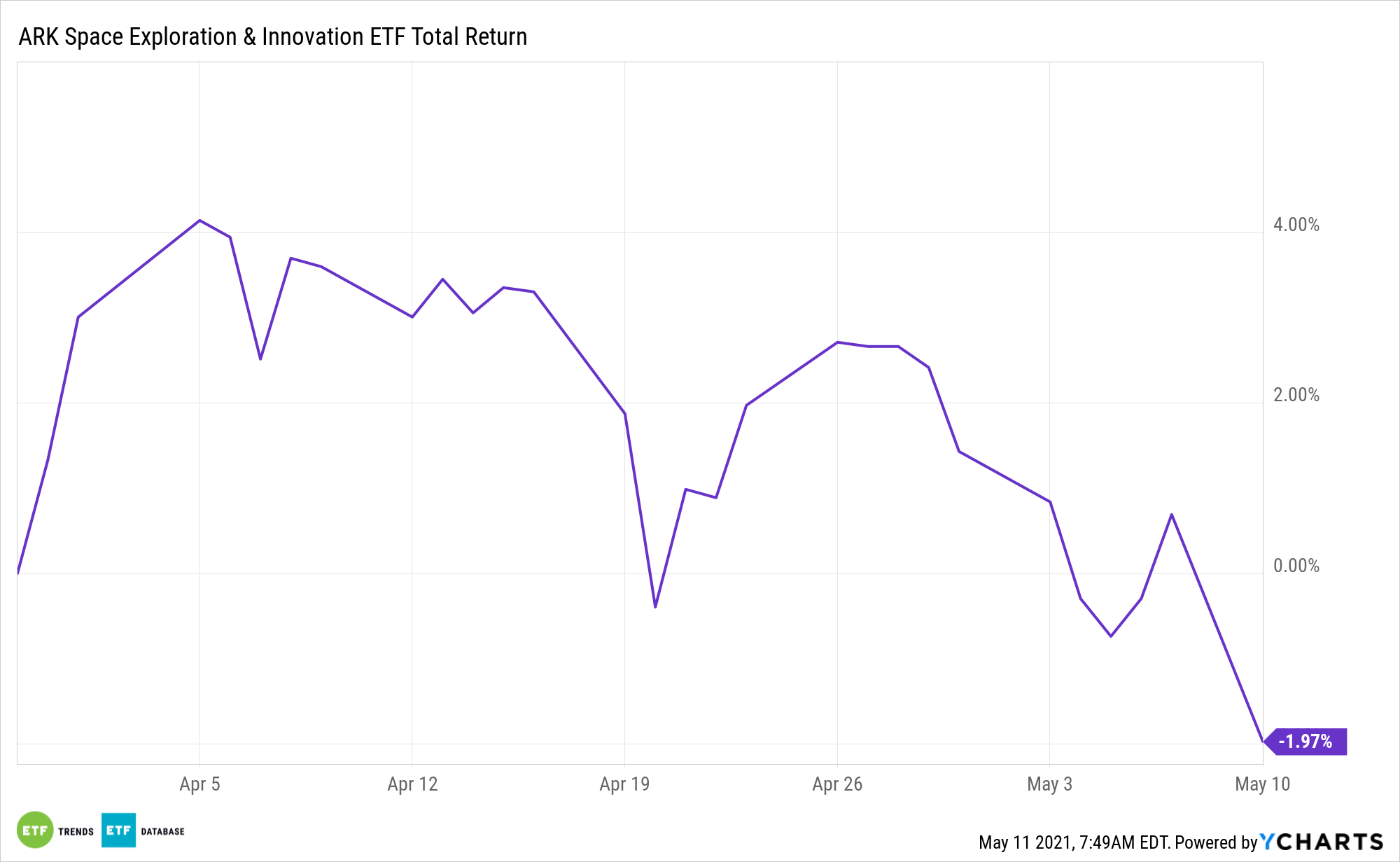The ARK Space Exploration ETF (ARKX), the newest exchange traded fund from ARK Investment Management, debuted in late March and was one of the most widely anticipated ETF launches of the first quarter.
It’s too early to judge ARKX on performance, particularly against the backdrop of challenges for growth and emerging technology stocks, but the long-term outlook for space investing bright. That’s a trend that could lure more investors to the actively managed ARKX.
Coincidentally, last week was the 60th anniversary of the first human traveling to space. Obviously, that’s in the past, but the present and future for ARKX is looking up.
“The last several weeks have seen major developments in the field of space exploration, including the historic flight of NASA’s Ingenuity helicopter on the surface of Mars, the first-ever powered flight on another planet. Other noteworthy events include SpaceX snagging a $2.9 billion deal from NASA to develop a human lander that will carry the next astronauts to the lunar surface and beyond,” notes Morningstar analyst Vikram Barhat.
ARKX’s Active Advantages
The concept of space investing, lucrative as it may prove to be, is still in its infancy. That could be a sign that adaptable approaches, such as the active ARKX, are best suited for this frontier.
“If the list of active and upcoming projects is any indication, space-related activity is taking off like never before,” adds Barhat. “And as mankind’s quest for a deeper understanding of space becomes more intense, a growing number of companies are jumping into the fray with an eye on commercial opportunities on the horizon.”
ARKX also offers investors depth – something that’s hard to find in some older products attempting to address space investing. The fund features exposure to orbital and suborbital aerospace companies, 3D printing companies, enabling technology providers, and aerospace beneficiary firms.
See also: Otherworldly Potential: The ARKX ETF Invests in Space
That depth is a plus because the rapid expansion of space spending won’t be confined to just one or two industries.
“Bank of America projects the revenue generated by the global space industry to hit $1.4 trillion by 2030, from $414 billion in 2018,” notes Barhat. “As more countries rush to develop their space economies, the following companies stand to significantly profit due to their entrenched positions, technological expertise, and research and development capabilities.”

For more on disruptive technologies, visit our Disruptive Technology Channel.
The opinions and forecasts expressed herein are solely those of Tom Lydon, and may not actually come to pass. Information on this site should not be used or construed as an offer to sell, a solicitation of an offer to buy, or a recommendation for any product.

